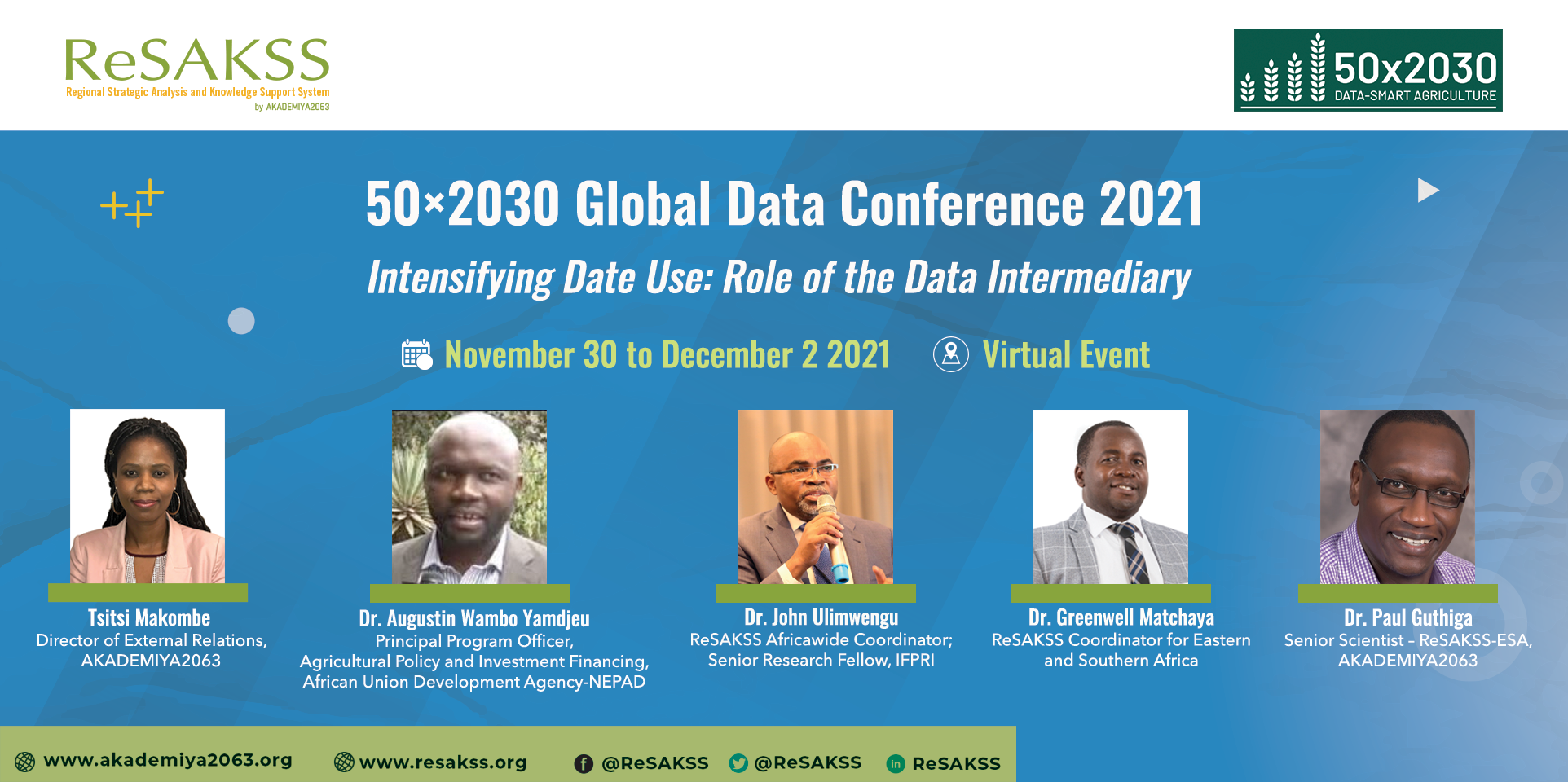
Joseph Karugia, coordinator of the Regional Strategic Analysis and Knowledge Support System for Eastern and Central Africa (ReSAKSS-ECA) leads a capacity building session (photo credit: ILRI/Leonard Kirui).
Policymaking is a vital aspect of governance in the agriculture sector. In Kenya, the agriculture sector, which includes livestock farming, contributes significantly towards the nation’s economic growth. The policies governing the sector are therefore crucial for the realization of development that ensures good economic performance and well-being of citizens.
The International Livestock Research Institute (ILRI) has been taking a lead in agriculture policy formulation through an initiative that seeks to ensure that the Kenya agriculture sector actors have capacity to understand and formulate policy. The initiative is led by ILRI’s Regional Strategic Analysis and Knowledge Support System for Eastern and Central Africa (ReSAKSS-ECA) in collaboration with AgriFoSe2030, a program that translates scientific research to information that supports better policies and improved practices within the agriculture sector. AgriFoSe2030 is funded by the Swedish International Development Agency (Sida).
These initiatives have focused on addressing Kenya’s agriculture sector human resource capacity challenge with the aim of improving food and nutrition security. To achieve this, recent PhD graduates from various institutions of higher learning were selected for training. Capacity building efforts were then employed to grow the young scientist’s ability to undertake policy-relevant research, analysis and dissemination to policymakers.
This has been done in two phases. Phase I was implemented in 2017–2018 and the second phase spanned 2018–2019 with an aim of nurturing a wide network of well-equipped and rightly connected policy analysts.
Assessment of capacity caps
During the first phase, 12 beneficiaries were reached with remarkable achievement. In the second phase, while building on the successes of the first, an additional 32 postdoc scientists were nominated. A needs assessment was conducted to identify capacity gaps and then used to inform the training support that mentors would need from ILRI/ReSAKSS and the areas that mentors would focus on as they provided support to mentees. The key areas highlighted for capacity building include:
- Understanding basic concepts in policymaking.
- Understanding the policy landscape in the agricultural sector in Kenya.
- How to identify and undertake policy relevant research.
- Basic analytical tools/models for undertaking policy analysis.
- Preparation of policy briefs.
- How to undertake policy advocacy and disseminate policy messages.
Mentoring activities
Mentors of Phase II were recruited from among the mentees of Phase I. To enhance success in expanding the policy network, the mentors and mentees were identified from the same institutions and as such, they were in close proximity to each other. This enhanced their interactions for mentoring, coaching and advice. Regular reports to ILRI/ReSAKSS from the mentors and mentees showed activities taken and they submitted draft policy briefs among other knowledge management innovations for further support.
Some innovations by the project beneficiaries contributed to its success not only in the capacity building objectives but also creating awareness about the role of scientists in informing policy and practice in Kenya. ‘For instance, teams from University of Nairobi, Egerton University, and University of Eldoret organized joint training workshops involving faculty members such as deans, heads of departments and other management teams in addition to mentees,’ says Karugia.
‘As part of its supportive role and to ensure mentees delivered on the project objectives, ILRI/ReSAKSS then organized training workshops at various times to engender common understanding of key topics. These topics include the policy and practice landscape in Kenya, research-policy linkages, and different models for engagement and knowledge exchange,’ he said.
The capacity building sessions equipped the nominees with hands-on tools and skills for effective research-to-policy communication. In addition, these processes offered opportunity for beneficiaries to share lessons and experiences.
This initiative builds on a renewed interest in promoting agricultural production and food security through the Comprehensive Africa Agriculture Development Programme (CAADP), which seeks to fight poverty, end hunger and spur economic growth around the agriculture sector. Being able to understand and effect the policy changes required in the agriculture sector especially through evidence-based policy research interventions, is crucial. The CAADP recognizes and emphasizes the need to strengthen capabilities, as well as the policy and institutional environments required to trigger agricultural transformation.
Read the original blog here

